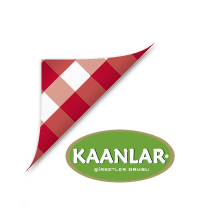FREQUENTLY ASKED QUESTIONS
It was founded in Istanbul/Unkapan
Our products are natural and reliable and do not contain natamycin, which is a harmful additive.
We manufacture our products with 100% milk, not milk powder.
We manufacture our products with the best milk in Europan county.
Lebanon, Iraq, Azerbaijan, Libya, Hong Kong, Cyprus, Israel, Palestine, Uzbekistan, Turkmenistan, Saudi Arabia, USA, Jordan, Morocco, Germany, Japan
We have Halal Food Certificate for all our cheese varieties.
Our cheese factory is located in Tekirdağ Malkara and our olive factory is located in Manisa Akhisar.
Our product groups are White Cheese, Kashkaval Cheese, Regional Cheese, World Cheese, Spreadable Cheese, Butter Group, Light Cheese, Kid’s Cheese, Black Olives and Green Olives. You can refer to our catalogues to review all product groups.
The reason for the occurrence of bulging in cheese products is the breaking of the cold chain at a particular point. Consumers should check the shelf at the purchasing location. While shelf life of products that are stored at +4 – +5 degrees is 100 days, shelf life of products that are stored at +15 degrees is 10 days. Yeast and gas start to occur during the time when product is exposed to heat. This causes product to bulge.
Its reason is high shelf temperature. If temperature indicators of fridges in supermarkets shows +4 degrees, it does not mean that product temperature is +4 degrees. Product starts to mature faster when it is exposed to heat and causes bitterness.
Growth of mold starts when product is exposed to oxygen. The basic reason for this is deformation of packaging. Growth of mold occurs in case of vacuum leaks for vacuumed packaging, and breaking of packaging and exposure of product to oxygen through the broken point, for hard packaging.
Cold chain refers to supply, production, transport and storage of perishable products from raw material process to delivery of it to table at appropriate temperature value. All these components constitute cold chain as a whole. For example, milk that is in raw material condition is taken to tanks at +4 degrees immediately after milking the cows. These tanks are shipped to the factory by special trucks at +4 degrees. Products are stored at fridges at +4 degrees after production process. They are shipped to supermarkets by trucks at +4 degrees. They are offered for sale on shelves at +4 degrees. Consumers store the product in fridge at +4 degrees. If the product is exposed to temperature over +4/+5 degrees in any of these processes, problems such as spoilage, bulging, bitterness start to occur.

